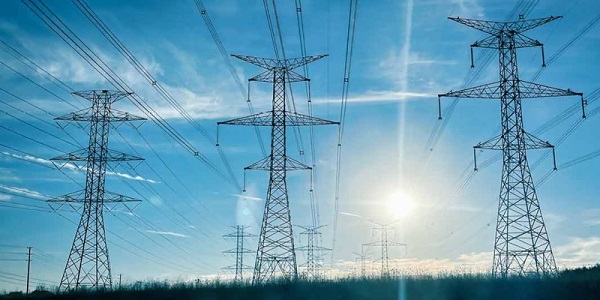Business
Report Reveals Push to Weaponize AI for Censorship

New US report highlights federal attempts to regulate AI for censorship, proposing free speech-focused legislation to protect open innovation.
|
For a while now, emerging AI has been treated by the Biden-Harris administration, but also the EU, the UK, Canada, the UN, etc., as a scourge that powers dangerous forms of “disinformation” – and should be dealt with accordingly.
According to those governments/entities, the only “positive use” for AI as far as social media and online discourse go, would be to power more effective censorship (“moderation”). A new report from the US House Judiciary Committee and its Select Subcommittee on the Weaponization of the Federal Government puts the emphasis on the push to use this technology for censorship as the explanation for the often disproportionate alarm over its role in “disinformation.” We obtained a copy of the report for you here. If you’re tired of censorship and surveillance, subscribe to Reclaim The Net.
The interim report’s name spells out its authors’ views on this quite clearly: the document is called, “Censorship’s Next Frontier: The Federal Government’s Attempt to Control Artificial Intelligence to Suppress Free Speech.” The report’s main premise is well-known – that AI is now being funded, developed, and used by the government and third parties to add speed and scale to their censorship, and that the outgoing administration has been putting pressure on AI developers to build censorship into their models. What’s new are the proposed steps to remedy this situation and make sure that future federal governments are not using AI for censorship. To this end, the Committee wants to see new legislation passed in Congress, AI development that respects the First Amendment and is open, decentralized, and “pro-freedom.” The report recommends legislation along four principles, focused on preserving American’s right to free speech. The first is that the government cannot be involved when decisions are made in private algorithms or datasets regarding “misinformation” or “bias.” The government should also be prohibited from funding censorship-related research or collaboration with foreign entities on AI regulation that leads to censorship. Lastly, “Avoid needless AI regulation that gives the government coercive leverage,” the document recommends. The Committee notes the current state of affairs where the Biden-Harris administration made a number of direct moves to regulate the space to its political satisfaction via executive orders, but also by pushing its policy through by giving out grants via the National Science Foundation, once again, aimed at building AI tools that “combat misinformation.” But – “If allowed to develop in a free and open manner, AI could dramatically expand Americans’ capacity to create knowledge and express themselves,” the report states. |
|
|
|
You subscribe to Reclaim The Net because you value free speech and privacy. Each issue we publish is a commitment to defend these critical rights, providing insights and actionable information to protect and promote liberty in the digital age.
Despite our wide readership, less than 0.2% of our readers contribute financially. With your support, we can do more than just continue; we can amplify voices that are often suppressed and spread the word about the urgent issues of censorship and surveillance. Consider making a modest donation — just $5, or whatever amount you can afford. Your contribution will empower us to reach more people, educate them about these pressing issues, and engage them in our collective cause. Thank you for considering a contribution. Each donation not only supports our operations but also strengthens our efforts to challenge injustices and advocate for those who cannot speak out.
Thank you.
|
Business
Senator Introduces Bill To Send One-Third Of Federal Workforce Packing Out Of DC
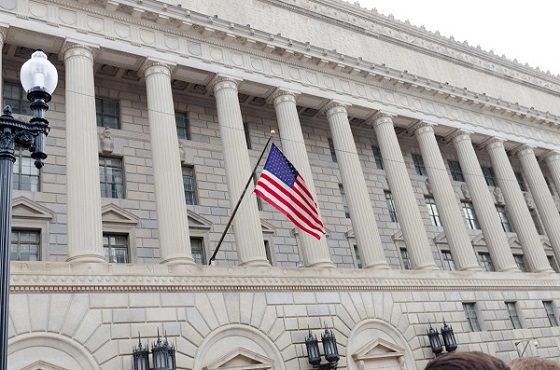

From the Daily Caller News Foundation
By Harold Hutchison
Republican Sen. Joni Ernst of Iowa introduced legislation Thursday that would send nearly a third of the federal employees out of the Washington, D.C. metropolitan area.
The bill, known as the ‘Decentralizing and Reorganizing Agency Infrastructure Nation-wide To Harness Efficient Services, Workforce Administration, and Management Practices (DRAIN THE SWAMP) Act, is far more sweeping than the “Returning SBA to Main Street Act,” legislation introduced by Ernst Dec. 12 that focused on the Small Business Administration (SBA). Ernst told the Daily Caller News Foundation that the move would improve services for Americans while saving billions of taxpayer dollars.
“Federal employees don’t want to work in Washington, so why should taxpayers be footing the bill? By relocating at least 30% of the federal workforce, we will save billions and improve service for veterans, small businesses, and all Americans. The bureaucrat laptop class has been out of the office for far too long, and it is time to get them back to work for the American people,” Ernst told the Daily Caller News Foundation.
The legislation requires most government agencies to “promote geographic diversity, including consideration of rural markets” when relocating employees from the D.C. area and to “ensure adequate staffing throughout the regions of the Administration, to promote in-person customer service.” Exceptions are made for fewer than 10 agencies, most involved in national security, like the Department of Defense, Central Intelligence Agency, the Department of Homeland Security, and the Department of Energy.
The legislation also requires most federal agencies to reduce the total office space in their Washington, D.C., headquarters by at least 30% in a two-year timeframe following the bill’s enactment.
Ernst issued a 60-page report Dec. 5 that covered findings from Ernst’s investigations into telework since she sent an August 2023 letter to 24 government agencies requesting a review of the issues involved with telecommuting.
Previous investigations by Ernst into telecommuting by federal employees detailed the issues that telework created involving locality pay, an adjustment to the basic pay of civilian employees in the federal government intended to make sure that federal employees have comparable compensation to private-sector counterparts in a given area of the country. In the August 2023 letter sent to 24 government agencies requesting a review of the issues involved with telecommuting, Ernst cited a media account of a VA employee who attended a staff meeting while taking a bubble bath.
Ernst issued a 60-page report Dec. 5 that covered findings from her investigations into the issues involved with telecommuting by federal employees. Those findings detailed issues that telework created involving locality pay, an adjustment to the basic pay of civilian employees in the federal government intended to make sure that federal employees have comparable compensation to private-sector counterparts in a given area of the country.
In one case cited by the senator on multiple occasions, a United States Agency for International Development (USAID) employee received locality pay for the Washington, D.C., area despite living full-time in Florida. The employee in question retired before the conclusion of the probe, according to a summary posted on the USAID inspector general’s site April 30.
Ernst’s legislation mandates that affected federal agencies “ensure that the rate of pay of the employee is calculated based on the pay locality for the permanent duty station of the employee.”
The Office of Management and Budget did not immediately respond to a request for comment from the DCNF.
Alberta
Ford and Trudeau are playing checkers. Trump and Smith are playing chess
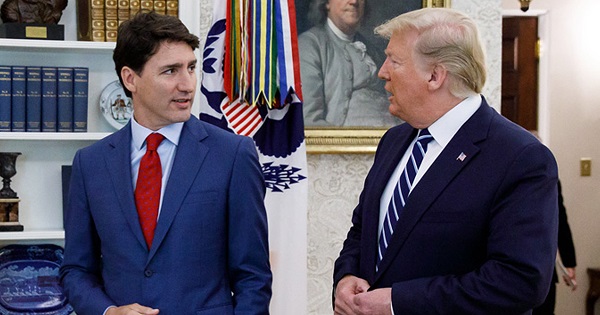
By Dan McTeague
Ford’s calls for national unity – “We need to stand united as Canadians!” – in context feels like an endorsement of fellow Electric Vehicle fanatic Trudeau. And you do wonder if that issue has something to do with it. After all, the two have worked together to pump billions in taxpayer dollars into the EV industry.
There’s no doubt about it: Donald Trump’s threat of a blanket 25% tariff on Canadian goods (to be established if the Canadian government fails to take sufficient action to combat drug trafficking and illegal crossings over our southern border) would be catastrophic for our nation’s economy. More than $3 billion in goods move between the U.S. and Canada on a daily basis. If enacted, the Trump tariff would likely result in a full-blown recession.
It falls upon Canada’s leaders to prevent that from happening. That’s why Justin Trudeau flew to Florida two weeks ago to point out to the president-elect that the trade relationship between our countries is mutually beneficial.
This is true, but Trudeau isn’t the best person to make that case to Trump, since he has been trashing the once and future president, and his supporters, both in public and private, for years. He did so again at an appearance just the other day, in which he implied that American voters were sexist for once again failing to elect the nation’s first female president, and said that Trump’s election amounted to an assault on women’s rights.
Consequently, the meeting with Trump didn’t go well.
But Trudeau isn’t Canada’s only politician, and in recent days we’ve seen some contrasting approaches to this serious matter from our provincial leaders.
First up was Doug Ford, who followed up a phone call with Trudeau earlier this week by saying that Canadians have to prepare for a trade war. “Folks, this is coming, it’s not ‘if,’ it is — it’s coming… and we need to be prepared.”
Ford said that he’s working with Liberal Finance Minister Chrystia Freeland to put together a retaliatory tariff list. Spokesmen for his government floated the idea of banning the LCBO from buying American alcohol, and restricting the export of critical minerals needed for electric vehicle batteries (I’m sure Trump is terrified about that last one).
But Ford’s most dramatic threat was his announcement that Ontario is prepared to shut down energy exports to the U.S., specifically to Michigan, New York, Wisconsin, and Minnesota, if Trump follows through with his plan. “We’re sending a message to the U.S. You come and attack Ontario, you attack the livelihoods of Ontario and Canadians, we’re going to use every tool in our toolbox to defend Ontarians and Canadians across the border,” Ford said.
Now, unfortunately, all of this chest-thumping rings hollow. Ontario does almost $500 billion per year in trade with the U.S., and the province’s supply chains are highly integrated with America’s. The idea of just cutting off the power, as if you could just flip a switch, is actually impossible. It’s a bluff, and Trump has already called him on it. When told about Ford’s threat by a reporter this week, Trump replied “That’s okay if he does that. That’s fine.”
And Ford’s calls for national unity – “We need to stand united as Canadians!” – in context feels like an endorsement of fellow Electric Vehicle fanatic Trudeau. And you do wonder if that issue has something to do with it. After all, the two have worked together to pump billions in taxpayer dollars into the EV industry. Just over the past year Ford and Trudeau have been seen side by side announcing their $5 billion commitment to Honda, or their $28.2 billion in subsidies for new Stellantis and Volkswagen electric vehicle battery plants.
Their assumption was that the U.S. would be a major market for Canadian EVs. Remember that “vehicles are the second largest Canadian export by value, at $51 billion in 2023 of which 93% was exported to the U.S.,”according to the Canadian Vehicle Manufacturers Association, and “Auto is Ontario’s top export at 28.9% of all exports (2023).”
But Trump ran on abolishing the Biden administration’s de facto EV mandate. Now that he’s back in the White House, the market for those EVs that Trudeau and Ford invested in so heavily is going to be much softer. Perhaps they’d like to be able to blame Trump’s tariffs for the coming downturn rather than their own misjudgment.
In any event, Ford’s tactic stands in stark contrast to the response from Alberta, Canada’s true energy superpower. Premier Danielle Smith made it clear that her province “will not support cutting off our Alberta energy exports to the U.S., nor will we support a tariff war with our largest trading partner and closest ally.”
Smith spoke about this topic at length at an event announcing a new $29-million border patrol team charged with combatting drug trafficking, at which said that Trudeau’s criticisms of the president-elect were, “not helpful.” Her deputy premier Mike Ellis was quoted as saying, “The concerns that president-elect Trump has expressed regarding fentanyl are, quite frankly, the same concerns that I and the premier have had.” Smith and Ellis also criticized Ottawa’s progressively lenient approach to drug crimes.
(For what it’s worth, a recent Léger poll found that “Just 29 per cent of [Canadians] believe Trump’s concerns about illegal immigration and drug trafficking from Canada to the U.S. are unwarranted.” Perhaps that’s why some recent polls have found that Trudeau is currently less popular in Canada than Trump at the moment.)
Smith said that Trudeau’s criticisms of the president-elect were, “not helpful.” And on X/Twitter she said, “Now is the time to… reach out to our friends and allies in the U.S. to remind them just how much Americans and Canadians mutually benefit from our trade relationship – and what we can do to grow that partnership further,” adding, “Tariffs just hurt Americans and Canadians on both sides of the border. Let’s make sure they don’t happen.”
This is exactly the right approach. Smith knows there is a lot at stake in this fight, and is not willing to step into the ring in a fight that Canada simply can’t win, and will cause a great deal of hardship for all involved along the way.
While Trudeau indulges in virtue signaling and Ford in sabre rattling, Danielle Smith is engaging in true statesmanship. That’s something that is in short supply in our country these days.
As I’ve written before, Trump is playing chess while Justin Trudeau and Doug Ford are playing checkers. They should take note of Smith’s strategy. Honey will attract more than vinegar, and if the long history of our two countries tell us anything, it’s that diplomacy is more effective than idle threats.
Dan McTeague is President of Canadians for Affordable Energy.
-
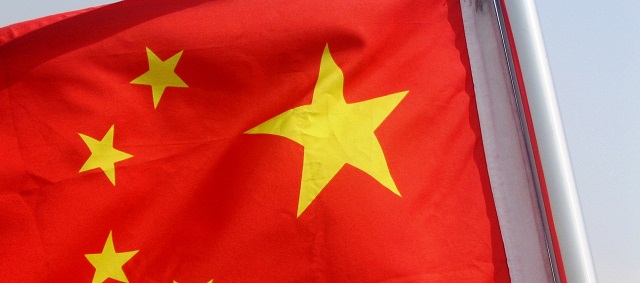
 Business2 days ago
Business2 days agoEXCLUSIVE: Former Biden Climate Czar Apparently Pushed Homeland Security To Ease Up On Chinese Company Linked To Slave Labor
-
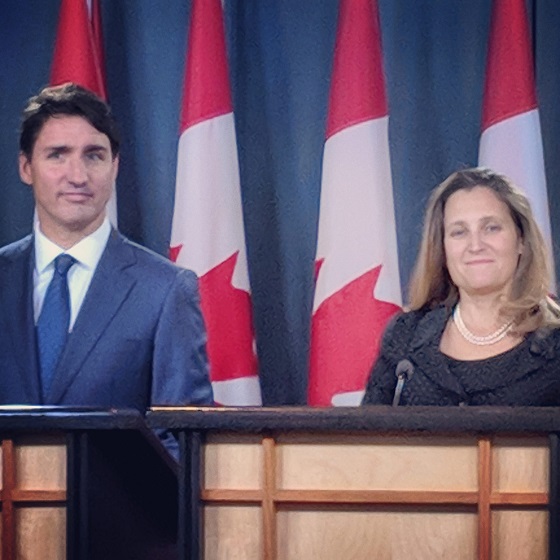
 National2 days ago
National2 days agoPaul Wells: The Second Finance Ministers Club
-
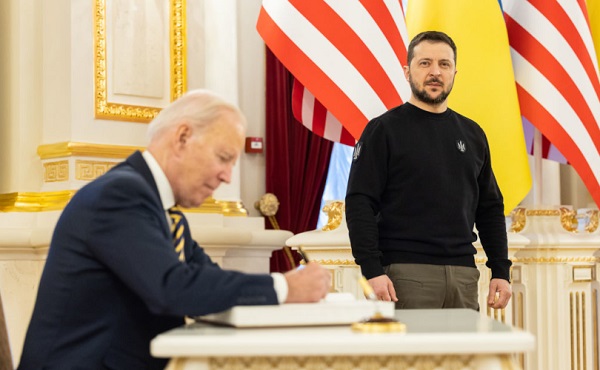
 conflict1 day ago
conflict1 day agoSending arms to Ukraine is unnecessarily placing American lives in danger
-

 Business1 day ago
Business1 day agoThe CBC gets $1.4 billion per year, but the Trudeau government wants to give it more
-
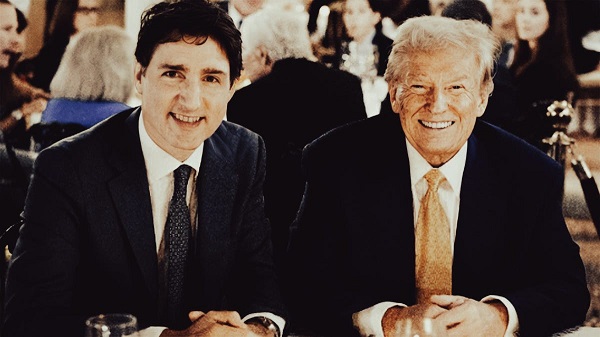
 Business2 days ago
Business2 days agoOut-Trumping Trump: A Mission Without a Win
-
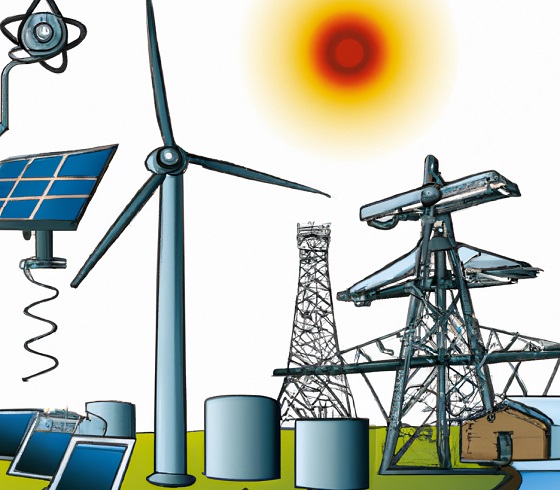
 Energy1 day ago
Energy1 day agoGuilbeault’s Emissions Obsession: Ten Reasons to Call Time Out on Canada’s CO2 Crusade
-
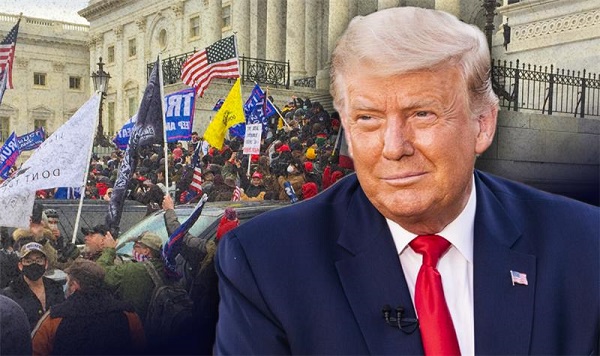
 International1 day ago
International1 day agoBombshell report shows FBI had ‘informants’ in Washington, DC on January 6
-

 Alberta1 day ago
Alberta1 day agoFraser Institute: Time to fix health care in Alberta






